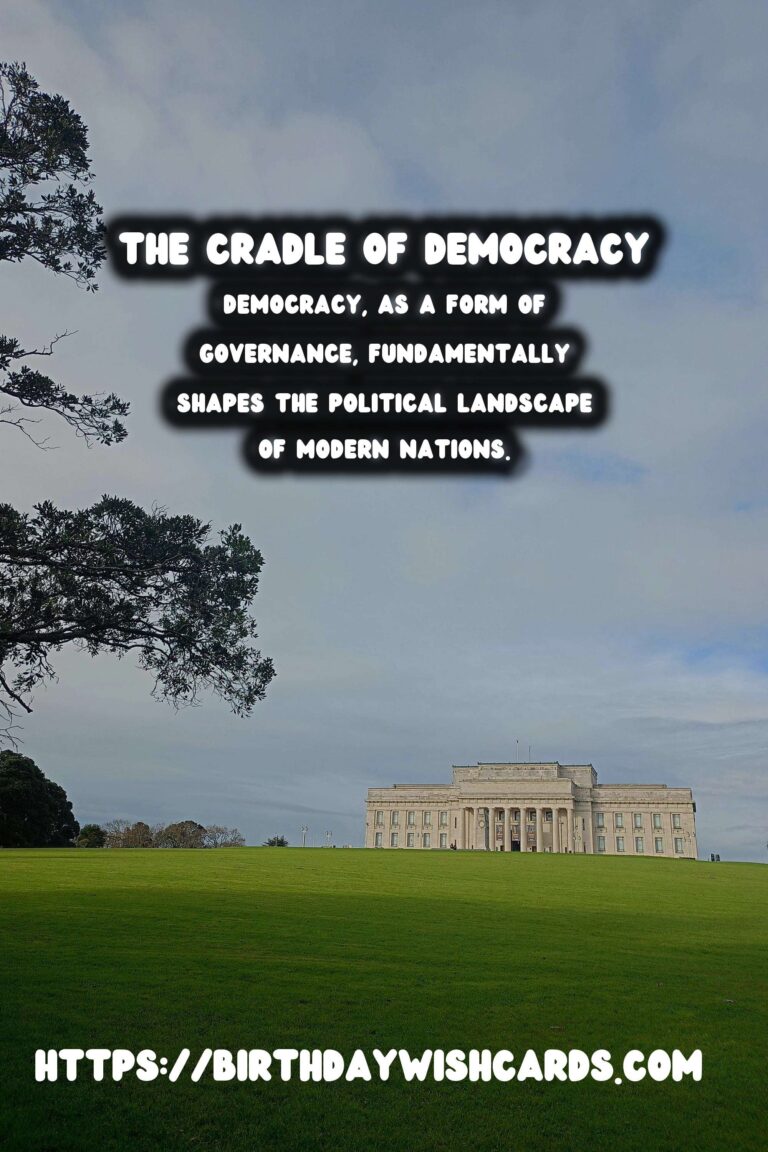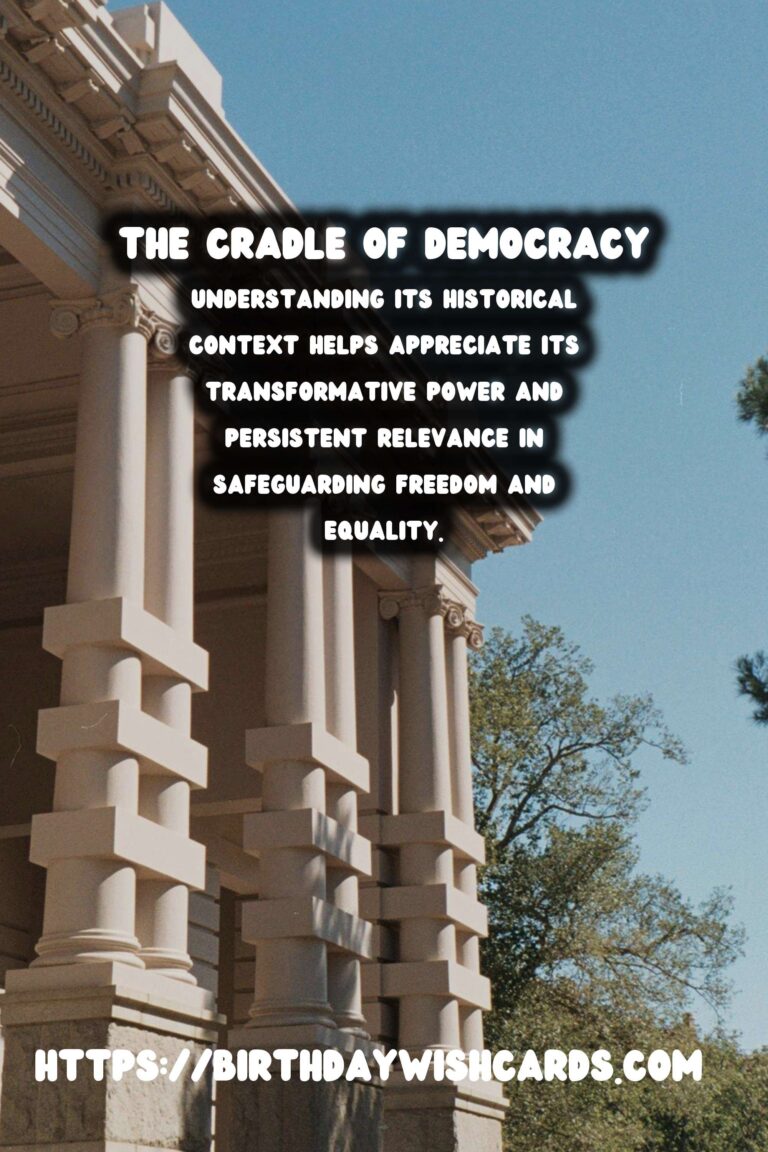
Democracy, as a form of governance, fundamentally shapes the political landscape of modern nations. Its origins are deeply rooted in ancient civilizations, but it is often attributed, in concept and initial practice, to the city-state of Athens in ancient Greece. As we delve into the birthplace of democracy, it is essential to examine its evolution, distinctive features, and the contemporary challenges it faces.
The Origins of Athenian Democracy
The concept of democracy originates from the Greek word ‘demos’ meaning ‘people’ and ‘kratos’ meaning ‘power’ or ‘rule’, translating directly to ‘rule by the people.’ Ancient Athens in the 5th century BCE is widely regarded as the cradle of democracy. This Athenian model was direct, meaning citizens directly participated in decision-making processes. It was unique in allowing citizens rather than the elite or royalty to govern.
Athenian democracy was established through progressive political reforms, initiated by leaders such as Solon and later Cleisthenes, who laid the groundwork for including more members of the society in political processes. However, it was limited to free men who were citizens; women, slaves, and foreign residents, known as ‘metics’, were excluded from political participation.
Evolution of Democratic Principles
Over the centuries, democracy has evolved dramatically. The Roman Republic introduced a form of representative democracy, where elected officials represented the populace. This was a significant shift from the direct democracy seen in Athens, leading to the ecosystems of governance we observe today.
Fast forward to the Enlightenment era in the 17th and 18th centuries, thinkers like John Locke and Montesquieu further articulated democratic principles, notably advocating for individual rights and separating powers within government structures. These philosophies greatly influenced the democratic systems adopted by modern states.
Democracy in the Modern World
Today, democracy takes on various forms, such as parliamentary, presidential, and hybrid systems, reflecting the diverse ways countries implement democratic principles. The universal demand for democracy is demonstrated by its incorporation into international agreements and national constitutions worldwide.
Contemporary democracies thrive on fundamental principles like free and fair elections, protection of human rights, the rule of law, and separation of powers. These ensure governments remain accountable, control remains distributed, and the populace actively participates in civic life.
Contemporary Challenges
However, modern democracies face several challenges. Political polarization often threatens the consensus-building that is crucial for democratic governance. Misinformation and fake news, proliferated by digital media platforms, challenge the informed citizenry at the heart of democratic decision-making.
Moreover, issues like corruption, economic inequality, and the influence of money in politics often dilute the essence of democracy, leading to disillusioned citizens and disenfranchised populations. These challenges necessitate constant vigilance and adaptation of democratic nations to better serve their citizens.
Conclusion
From its Athenian roots to its current interpretations, democracy remains a dynamic and evolving form of governance. Understanding its historical context helps appreciate its transformative power and persistent relevance in safeguarding freedom and equality. As we navigate the 21st century, the resilience and adaptability of democratic systems will be crucial in overcoming contemporary challenges and ensuring it remains the power ‘of the people, by the people, and for the people.’
Democracy, as a form of governance, fundamentally shapes the political landscape of modern nations. Understanding its historical context helps appreciate its transformative power and persistent relevance in safeguarding freedom and equality.
#Democracy #History

